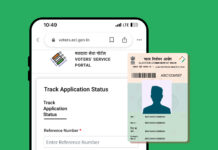The central bank has, for the first time, shared its Business Contingency Plan for critical operations
Banks have already activated BCPs by splitting key functions like treasury and forex into other locations.
MUMBAI : The Reserve Bank of India (RBI) has put in place a contingency plan to ensure that key information technology (IT) services for the delivery of digital banking, treasury services and cheque clearance are not disrupted by the coronavirus outbreak, according to an official who spoke on condition of anonymity.
RBI has, for the first time, shared its Business Continuity Plan (BCP), an integral risk mitigation measure for critical operations such as ensuring zero disruptions in the national payments systems.
It includes measures to prepare for anticipated disruptions, ensure smooth flow of operations and staffing, identify key resources, and form crisis management groups, while keeping all staff insulated from exposure to the virus.
This plan was launched on Thursday to ensure continuity of critical services like National Electronic Funds Transfer (NEFT), Real Time Gross Settlement (RTGS), e-Kuber for government transactions, and so on. The BCP ensures that all critical functions of the financial system continue to be available to individuals, businesses and governments under all circumstances.
Under the plan, RBI has created a team of 37 officials comprising key personnel from important functions like debt management, reserve management, monetary operations, and 113 officials from service providers, and moved them to a hotel near the primary data centre (DC).
The central bank’s DC runs critical systems that operate payments across different segments. Typically, around 600 personnel of third-party service providers are deployed at DCs for various IT and non-IT services, apart from 60 officials from the bank. As per the plan, the RBI team and hotel staff are isolated to ensure their safety and health.
RBI has also made similar arrangements at other DCs to run systems with the maximum services possible.
On 16 March, the central bank had also asked other banks to put in place BCPs to prevent any disruptions of services. “Several confirmed cases have also been detected in India, which highlight the need of a coordinated strategy for handling the emerging situations for protecting the resilience of the Indian financial system,” RBI had said.
“Encourage their customers to use digital banking facilities as far as possible. As the situation requires to be monitored closely, both from business and social perspective, a Quick Response Team may be constituted for the purpose, which shall provide regular updates to the top management on significant developments and act as a single point of contact with regulators/outside institutions/agencies,” RBI said.
In line with these instructions, the Indian Banks’ Association has prepared a three-pronged strategy to ensure critical banking functions area not disrupted. The industry body has told banks that all critical functions like centralized loan processing, back office data collection and treasury should not work in the same location and instead be segregated at different locations.
Banks have already activated BCPs by splitting key functions like treasury and forex into other locations. Banks have also relocated top officials to different offices as a precautionary measure of quarantining the headquarters.





